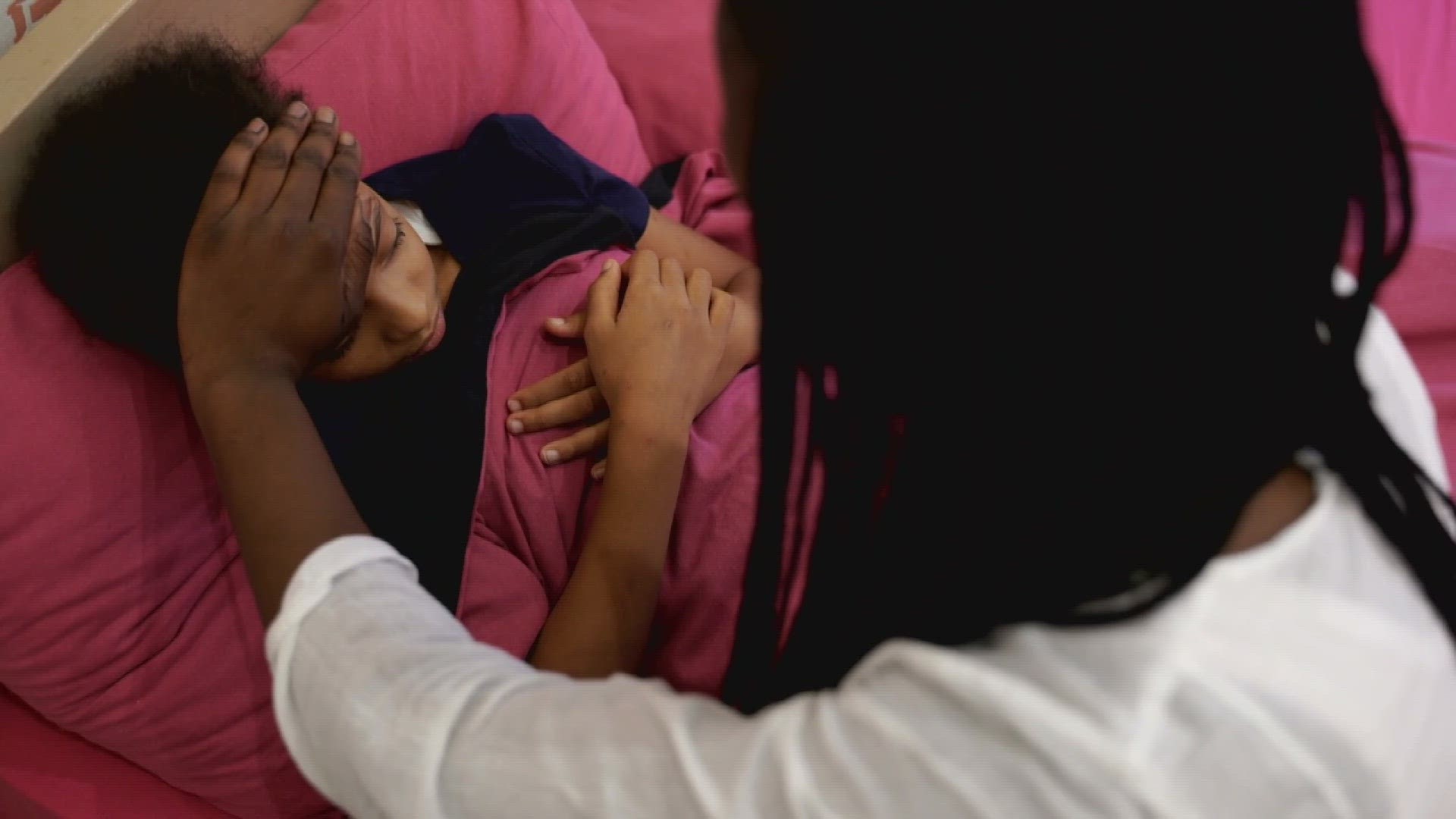GREENSBORO, N.C. — Winter is here, and as any parent knows it’s also “sick kid season.” Healthcare facilities are already being overwhelmed by sick kids, especially those with RSV, which causes cold-like symptoms and sometimes serious respiratory problems, especially in babies.
"While there’s no magic way to keep your kids from ever getting sick, there are some other things you can do to better the odds, such as keeping their vaccinations up to date," said Kevin Loria, Consumer Reports.
That includes the flu vaccine and COVID-19 vaccines and boosters. For infants, it’s important to speak to your pediatrician about the new RSV shot, which may lessen the severity of an RSV infection.
If your child does end up getting sick, focus on making them as comfortable as possible.
"Kids generally need time to get better, so let your child rest (while watching some movies, perhaps). It’s very important to keep them hydrated," said Loria.
And your grandma was right; research suggests that chicken soup may provide relief from common cold symptoms, easing a sore throat and preventing dehydration.
WHAT KINDS OF MEDS CAN KIDS TAKE?
As for medication, check with your doctor first, but it’s usually okay to use children’s ibuprofen or acetaminophen.
WHY KIDS SHOULDN'T TAKE COUGH MEDICINES
Steer clear of cough medicine because it doesn’t really work well for them and can even be dangerous. The FDA has this on their website about cough meds and kids:
Over-the-counter (OTC) medicines are available to treat cough and cold symptoms. The FDA doesn’t recommend OTC medicines for cough and cold symptoms in children younger than 2 because they could cause serious and potentially life-threatening side effects. Manufacturers voluntarily label these cough and cold products to state: “Do not use in children under 4 years of age.”
Numerous OTC cough and cold products contain many ingredients that can lead to accidental overdosing. Learn about what drugs (active ingredients) are in a product by reading the Drug Facts label.
Nonprescription cough and cold products can be harmful to children if:
- They get more than the recommended dose or take the medicine too often.
- They take more than one product containing the same drug. For example, taking both a pain reliever containing acetaminophen and cough and cold medicine containing acetaminophen.
Last fall, CVS pulled some cold medicines after the Food and Drug Administration said the active ingredient in them didn’t work.
THE SIGNS YOU NEED TO TAKE YOUR CHILD TO THE ER
Never ignore the signs of an emergency. If your child has a fever of 105 degrees, is showing signs of dehydration, or is having trouble breathing, take them to an ER.
Any fever in newborns under two months is also an emergency.

